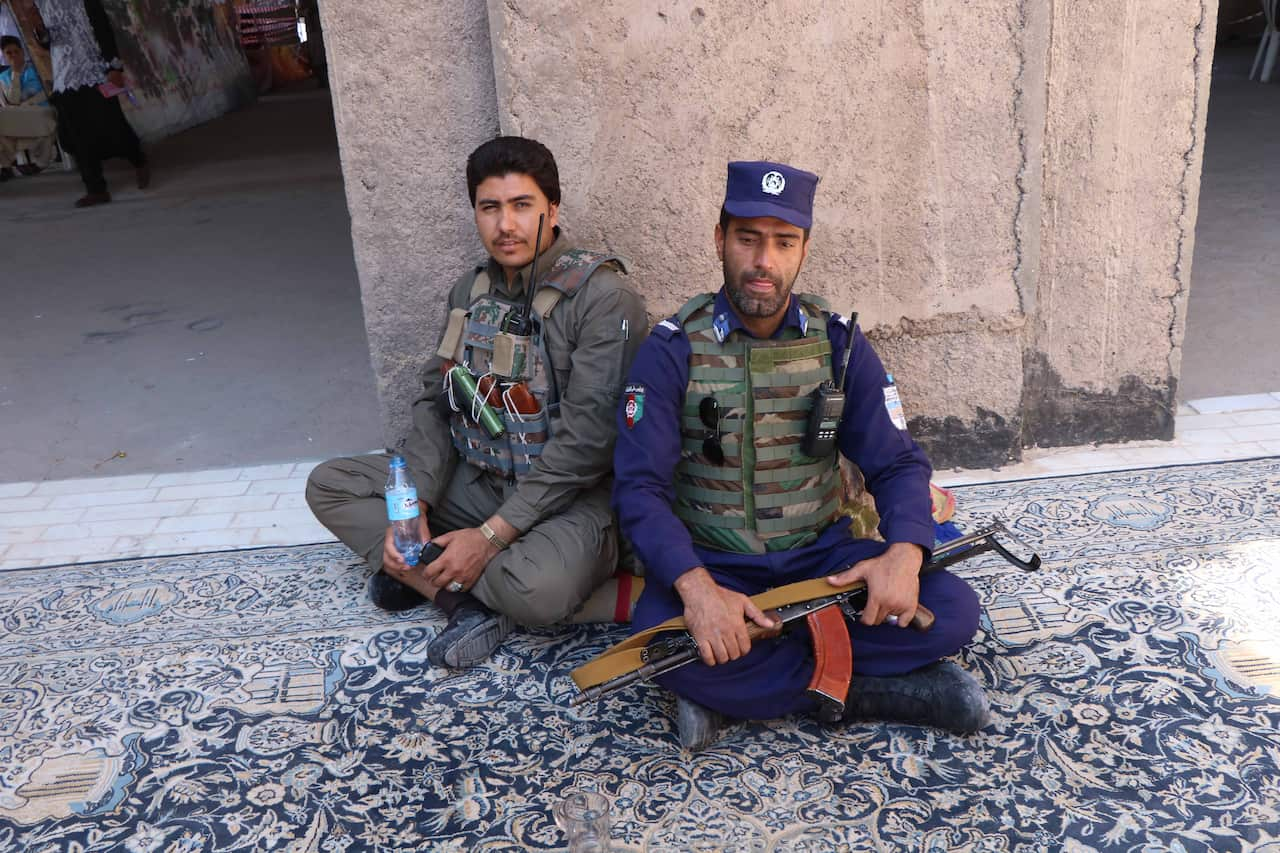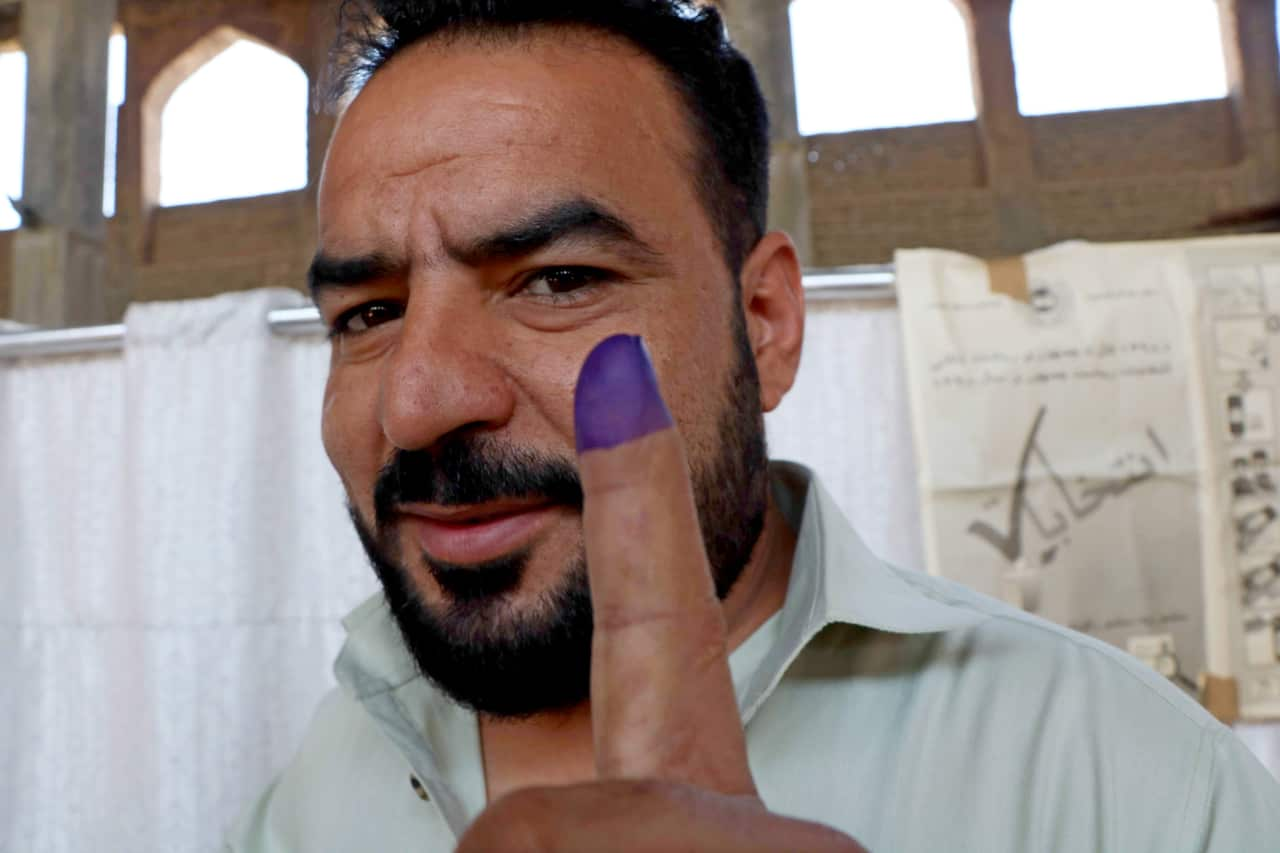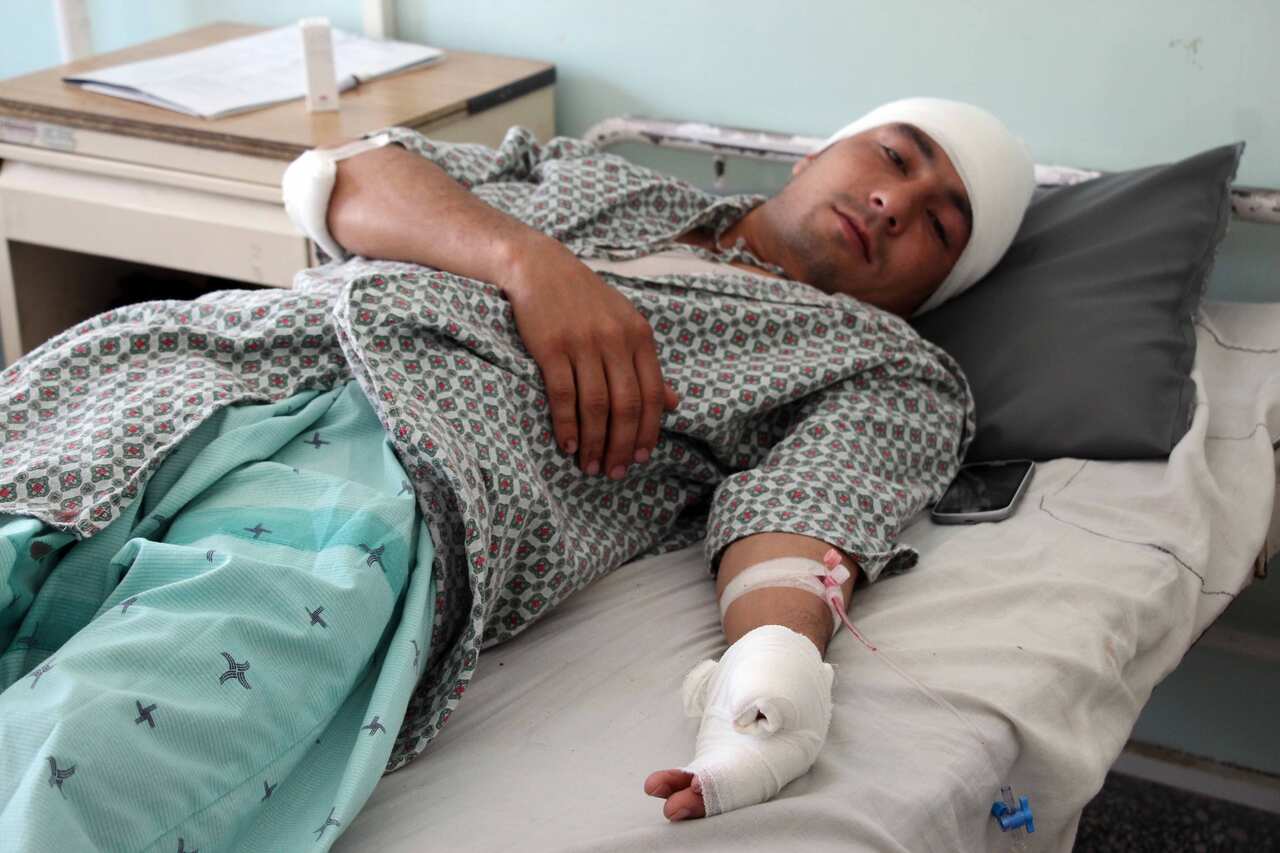Afghans have headed to the polls to elect a new president amid high security and Taliban threats to disrupt the elections, with the rebels warning citizens to stay home or risk being hurt.
Still, at some polling stations in the capital voters lined up even before the centres opened, while in others election workers had yet to arrive by poll opening time.
Imam Baksh, who works as a security guard, said he wasn't worried about his safety as he stood waiting to mark his ballot, wondering who he would vote for.
"All of them have been so disappointing for our country," he said.

The leading contenders are incumbent President Ashraf Ghani and his partner in the 5-year-old unity government, Abdullah Abdullah, who already alleges power abuse by his opponent. Cameras crowded both men as they cast their vote, with Ghani telling voters they too had a responsibility to call out instances of fraud.
Fear and frustration at the relentless corruption that has characterised successive governments ranks high among the concerns of Afghanistan's 9.6 million eligible voters.
Even in the early hours of voting, complaints had begun to be raised such as polling stations in the posh Wazir Akbar region opening late and biometric machines, aimed at curbing fraud, not working.
In the northern Taimani neighbourhood of mostly ethnic Hazaras, two-thirds of the voting registration papers had yet to arrive and angry voters were told their names were not on the list.
Abdul Ghafoor, who spoke on behalf of dozens of men waiting to cast their ballot, said that of about 3,000 registered voters only 400 appeared on the list that had arrived at the centre.

Ghafoor said he was told to return at 2 pm and that he would be allowed to vote even if his name was not on the list and without using the biometric machine.
"But how can they do this? My vote won't count if I am not on a list," he said.
In Khoja Ali Mohfaq Herawi mosque in Kabul's well-to-do Shahr-e-Now neighbourhood, election workers struggled with biometric machines as well as finding names on voters' lists.
Ahmad Shah, 32, cast his vote, but said the election worker forgot to ink his finger - which is mandatory to prevent multiple voting by the same person.
"What sort of system is this?" he asked, frustrated that he had risked his safety to vote and expressed fear that fraud will mar the election results. "It's a mess."
Still, 63-year old Ahmad Khan urged people to vote.
"It is the only way to show the Taliban we are not afraid of them," he said, though he too worried at the apparent glitches in the process.

Tens of thousands of police, intelligence officials and Afghan National Army personnel have been deployed throughout the country to protect the 4,942 election centres. Authorities said 431 polling centres will stay closed because it was impossible to guarantee their security since they were either in areas under Taliban control or where insurgents could threaten nearby villages.
In Kabul traffic was light, with police and the army scattered throughout the city, stopping cars and looking for anything out of the ordinary. The Taliban said they would take particular aim at Afghanistan's cities.
Outfitted in bullet-proof vests, their rifles by their side, soldiers slowed traffic to a crawl as they searched vehicles. Larger vehicles were not being allowed into the capital on Saturday, which is a usual working day but for the elections was declared a holiday.
Neighbour Pakistan, routinely accused of aiding insurgents, announced it was closing its borders with Afghanistan Saturday and Sunday to further protect security in the war-weary country.
With wires...

